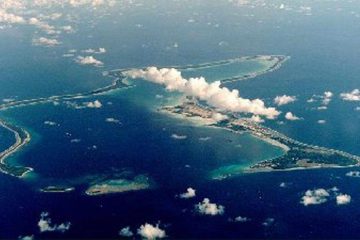The Political Significance of Chinese Taipei in International Relations

Introduction
Chinese Taipei, a term used primarily in international sports and diplomatic contexts, refers to Taiwan under a designation that avoids direct references to its sovereignty. This nomenclature allows Taiwan to participate in global affairs, most notably in the Olympics, while navigating the complex geopolitical landscape shaped by its relationship with mainland China. The importance of understanding the term ‘Chinese Taipei’ extends beyond sports, affecting international relations, local identity, and diplomatic recognition.
Historical and Political Context
The use of the name ‘Chinese Taipei’ came into existence after a significant agreement in 1981, allowing Taiwan to compete in international competitions without directly infringing upon the One China Policy, which touts Beijing’s claim over the territory. This decision came after the International Olympic Committee accepted Taiwan’s participation in the 1984 Summer Olympics held in Los Angeles. By adopting ‘Chinese Taipei’, the body maintained a delicate balance between Taiwan’s desires for representation and China’s insistence on its sovereignty over Taiwan.
This term is not only limited to sports; it has wider implications for diplomacy. In many international organisations, Taiwan is compelled to operate under this name, a political compromise that highlights its contested status in global politics. Furthermore, the term has stirred debates about the identity of Taiwanese people, who often view themselves as distinctly separate from mainland China, fostering a local identity movement that champions sovereignty.
Current Diplomatic Relations
In recent years, Taiwan’s international relations have shifted significantly. As pressures from China have increased, many nations have reconsidered their formal recognition of Taiwan; however, informal alliances and trade relations have strengthened, particularly with countries in the United States and Europe. Coupled with its strategic location and burgeoning technology sector, Taiwan has become a focal point of U.S.-China tensions, leading to heightened discussions about the implications of being recognised as ‘Chinese Taipei’ versus Taiwan.
The Future of Chinese Taipei
As geopolitical tensions continue to evolve, the identity of ‘Chinese Taipei’ will remain a critical topic for policymakers and citizens alike. The future of this designation hinges on the persistent struggle for diplomatic recognition, the aspirations of Taiwan’s populace for greater self-governance, and the broader international community’s stance on China-Taiwan relations. Scholars and analysts will continue to monitor how this term impacts Taiwan’s participation in global matters and its quest for a distinct identity.
Conclusion
In summary, the term ‘Chinese Taipei’ encapsulates the multifaceted challenges that Taiwan faces in its pursuit of international acknowledgement and local identity. Understanding the implications of this nomenclature is essential not only for sports enthusiasts but also for those following global political dynamics. As the situation evolves, the dialogue surrounding Chinese Taipei is likely to remain a significant aspect of Taipei’s interactions on the world stage.








